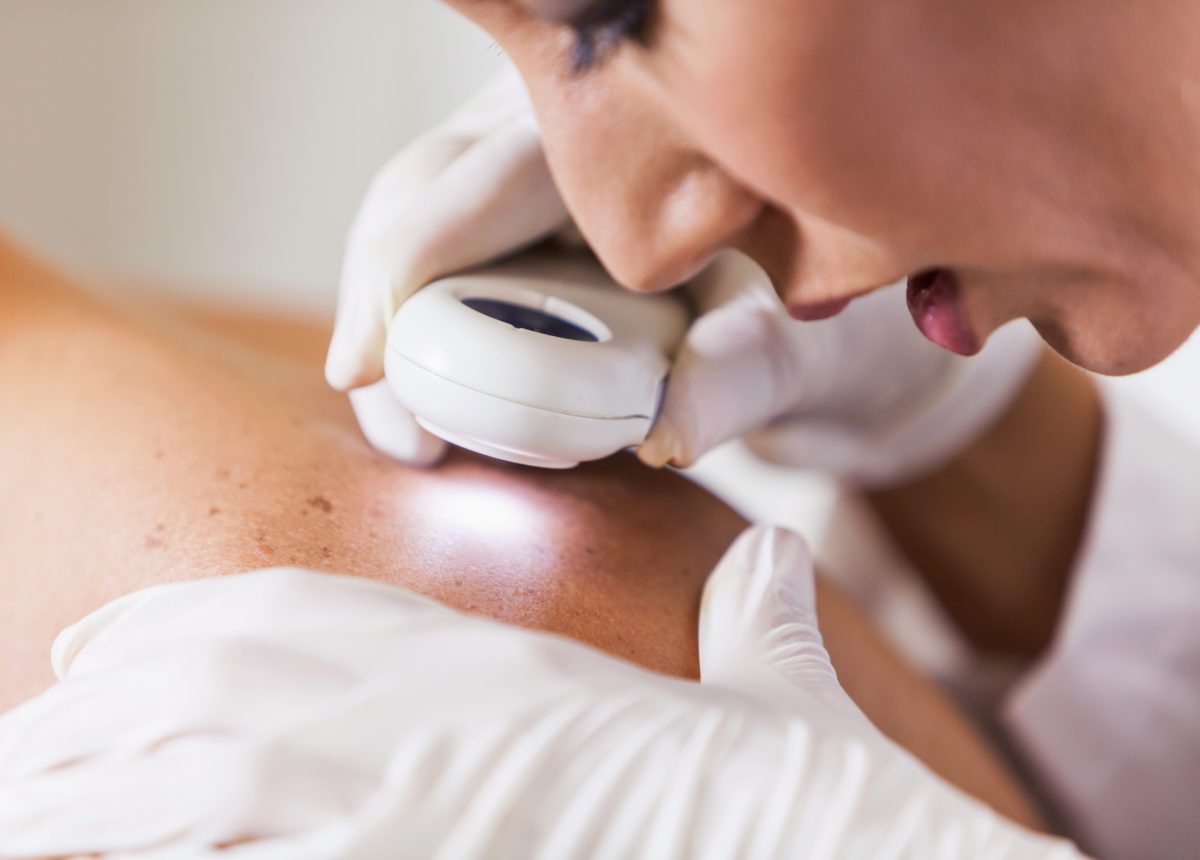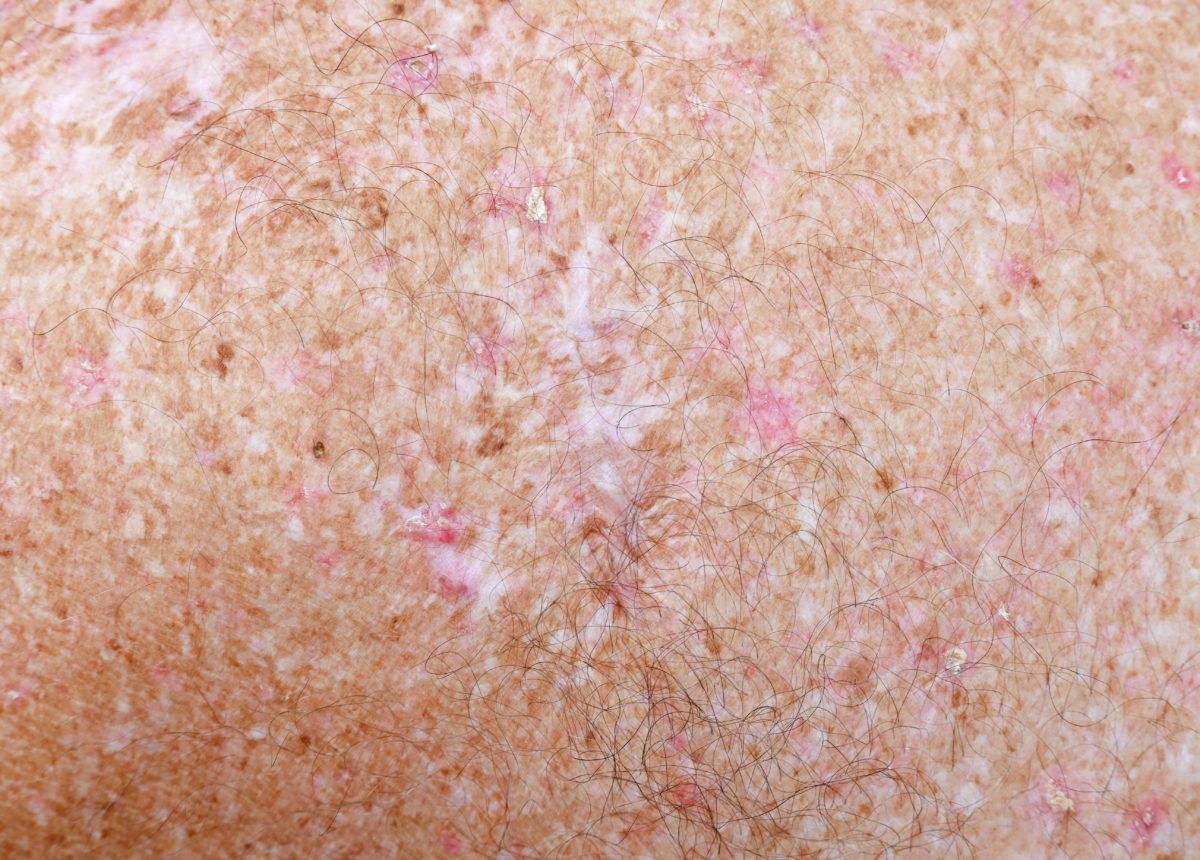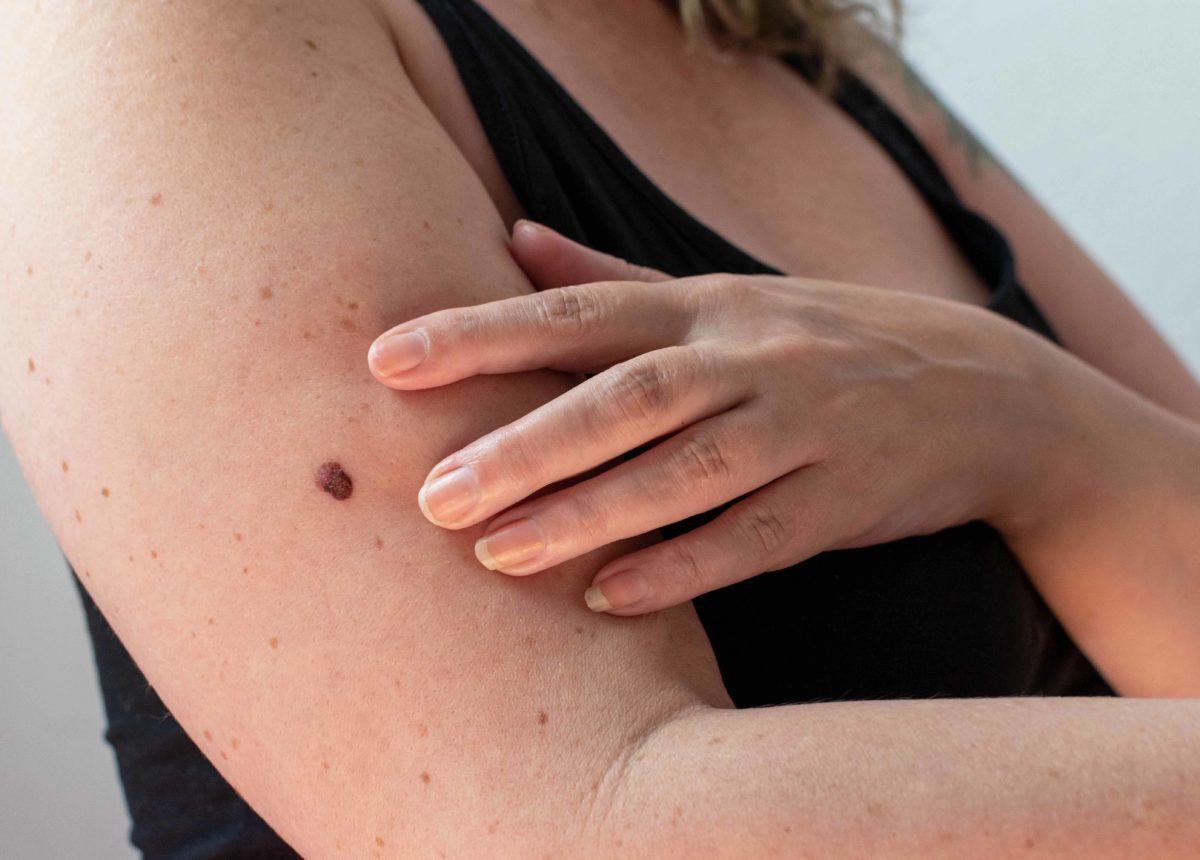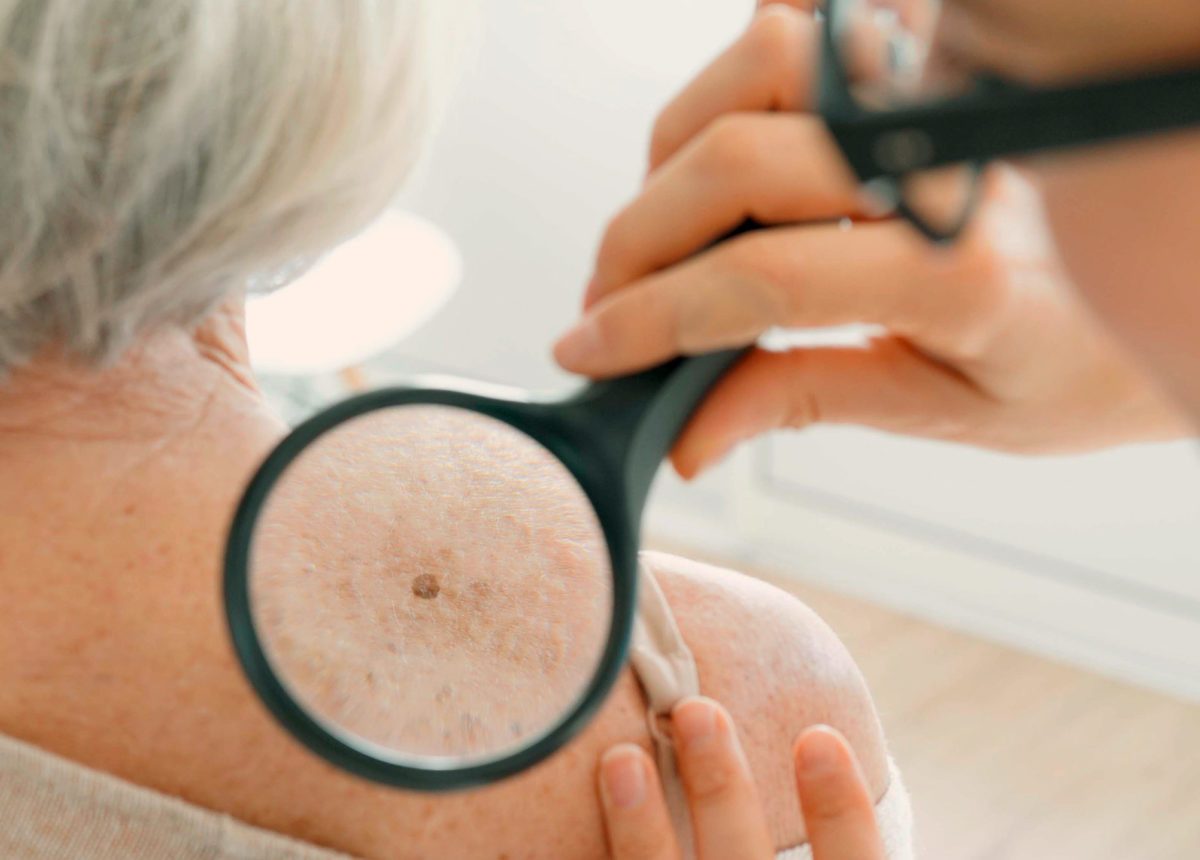Skin cancer treatment
Thanks to leading experts with outstanding clinical skills and advanced surgical techniques, Dermis Skin Clinic offers treatment options for a wide range of skin tumors at various stages and in critical areas such as the face and hands.
Let us advise you in detail about your treatment options!

How does skin cancer develop?
Skin cancer is caused by repeated cell damage, mainly due to UV radiation from the sun and sunbeds.
Cumulative exposure over years (or decades) causes DNA changes in the skin cells from which these tumors develop.
Risk factors for skin cancer include regular sunburns, repeated intense sun exposure without adequate protection, the presence of many moles (>100), certain genetic factors and a weakened immune system.
It is important to protect yourself from excessive sun exposure and use sunscreen to minimize the risk of skin cancer.
Regular skin examinations every 6 to 24 months (depending on skin type and medical history) are recommended to detect skin cancer early and initiate effective treatment.
How can skin cancer be detected?
Skin cancer is the most common type of cancer worldwide, with basal cell carcinomas and squamous cell carcinomas (white skin tumors) occurring most frequently.
Melanoma (black skin cancer) is less common, but has been on the rise for several years.
Symptoms of white skin cancer, such as basal cell carcinoma, include slow-growing, shiny, slightly raised patches or sores that do not heal.
Black skin cancer, or melanoma, can manifest itself through changes in an existing mole or the appearance of a new, dark, irregularly shaped patch on the skin.
Itching or bleeding may also occur.
Early detection is crucial for successful treatment.
Skin cancer: examination and diagnosis
The diagnosis of skin cancer is usually made through a thorough examination of the skin, where each skin change and mole is evaluated by dermoscopy, an analysis using a special magnifying glass with polarized light that allows the dermatologist to accurately assess the features.
If, after this analysis, the specialist suspects a white skin tumor (such as basal cell carcinoma or squamous cell carcinoma), the next diagnostic step is a skin biopsy, in which a small skin sample is taken and analyzed under a microscope to confirm the diagnosis.
In contrast, in the case of a suspicious black skin tumor, it is recommended to remove the lesion completely.
The Dermis Skin Clinic has all the modern examination methods for diagnosing skin cancer, from dermoscopy and skin biopsy to molecular diagnostics, in order to detect skin cancer at an early stage and treat it optimally.
Types of skin cancer
There are three main types of skin cancer: basal cell carcinoma (white skin cancer), squamous cell carcinoma (white skin cancer) and melanoma (black skin cancer).
Although basal cell carcinoma and squamous cell carcinoma are referred to as white skin cancer, they differ from melanoma, which is known as black skin cancer, in their characteristics and treatment methods.
It is important to have suspicious skin lesions examined by a doctor to ensure a timely diagnosis and the best possible treatment.
Skin cancer treatment: Surgical therapy
Surgical excision is the preferred treatment option.
This involves surgically removing the affected area of skin to prevent further growth and spread of the cancer.
Depending on the extent of the skin cancer, this may require a simple operation in the doctor’s office or a more complex operation under general anesthesia.
For larger tumors or advanced skin cancer, surgical reconstruction may be necessary to preserve the appearance and function of the treated area of skin.
In addition to surgical removal of the tumor, other treatment methods such as radiotherapy or chemotherapy may be required in advanced stages to ensure that all cancerous cells are eliminated.
Regular check-ups and skin cancer screening are important measures to prevent relapses and detect tumors at an early stage so that appropriate measures can be taken.
Differences in the treatment of white and black skin cancer
There are differences in the treatment of white and black skin cancer.
White skin cancer, such as basal cell carcinoma or squamous cell carcinoma, is usually less aggressive than black skin cancer (melanoma).
Treatment for white skin cancer includes procedures such as cryotherapy, surgical removal of the affected area or radiotherapy.
In contrast, black skin cancer often requires more aggressive forms of treatment such as surgical removal of the tumor, immunotherapy, radiation therapy and chemotherapy.
Because of these differences, it is important that skin cancer treatment is individualized to achieve the best possible results.
Dermis Skin Clinic offers comprehensive treatments for all types of skin cancer, including white and black skin cancer.
The experienced team of dermatologists and dermatooncologists will develop an individualized treatment strategy tailored to each patient’s specific needs and type of skin cancer.
Get in touch with us
We will be happy to take time for you, answer your questions or arrange a personal appointment with you. We look forward to welcoming you to one of our skin clinics and providing you with individual advice.
Telephone opening hours:
07.30 – 17.00
Mon-Fri, 07.30-17.00 hrs
+41 44 872 80 00








